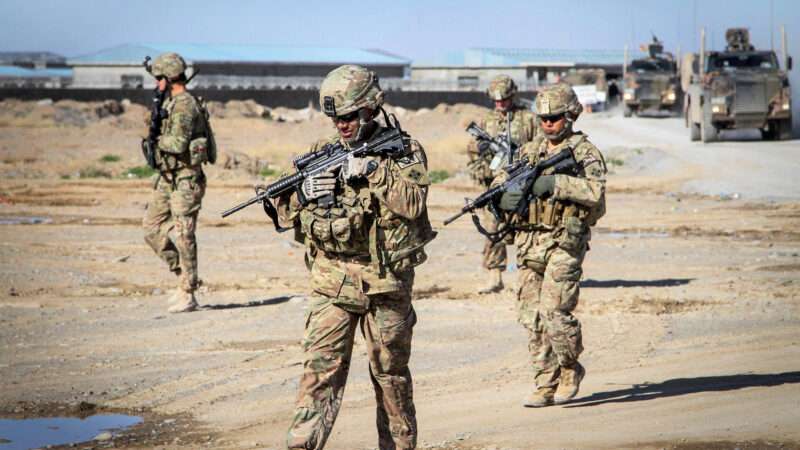
Abdul served the U.S. military as a civil engineer for nearly a decade in his native Afghanistan. His years of faithful service drew the attention and scorn of insurgents. When gunmen arrived at his doorstep and ambushed him, he fled with his wife and four children to India, where they received temporary protection. There, he was faced with an impossible decision: stay illegally with no authorization to work, return to near-certain peril in Afghanistan, or look for a new home elsewhere.
He chose the third. ABC News, which reported his story in December 2020, shared that Abdul applied for a special immigrant visa (SIV)—an American immigration pathway designed especially for Afghan interpreters and contractors who assisted U.S. forces during military campaigns. SIVs theoretically provide a valuable escape option to these Afghans, who risk death and torture at the hands of the Taliban because of their connections to the United States. For hopeful recipients, though, long-standing issues with the program make visas extraordinarily difficult to get—as Abdul would soon discover.
Abdul applied for an SIV in 2016 and submitted his application materials diligently, including the necessary letter of support from his supervisor, Mark Randall Frerichs, an American contractor who worked as an engineer. The two grew close over four years of working together. In his letter, Frerichs vouched that Abdul was “a dedicated and hardworking company member.” Frerichs submitted his support in July 2017 and provided a copy of his passport. The U.S. embassy verified the authenticity of both. In February 2019, Abdul received his approval.
But then Frerichs vanished the following January, presumably kidnapped by Taliban-aligned forces. He remains missing to this day and the U.S. government continues to offer up to $5 million for information leading to his return. “Just as my brother, his life is very important,” Abdul told ABC News of his friend’s disappearance. “More important than anything.”
Frerichs’ kidnapping is tragic enough, but it’s made worse by the fact that the U.S. is using it as a reason not to grant Abdul a visa. In March, the embassy retracted its previous approval of Abdul’s application, with the following stipulation: “You did not provide a valid letter of recommendation with your letter.” Lawyers with the International Refugee Assistance Project (IRAP) have confirmed this happened “solely” because the immigration office couldn’t reach Frerichs to reverify his letter of support.
Abdul had reached the final stages of the application process—which has 14 arduous steps—at that point. He scrambled to collect two new letters of recommendation, but those too were rejected because they came from supervisors who hadn’t worked for the U.S. government for the requisite two years. Because immigration officials couldn’t reach the kidnapped Frerichs to confirm for a second time that he was who he said he was, Abdul’s perfectly valid approval was scrapped.
IRAP announced Wednesday that it had filed a lawsuit on Abdul’s behalf, seeking to invalidate the withdrawal of his approval. Katie Austin, a staff attorney at IRAP, conveyed that Abdul’s “life has been upended by his service to the United States; the least our government could do is decide his application in a lawful manner.”
Sadly, Abdul is not the only American ally to experience this bureaucratic nightmare. Experts say that SIV applications are routinely mishandled due to a shortage of trained personnel, bad translators at visa interviews, and mistakes made by the State Department. Reason previously covered the story of Sayed, an Afghan interpreter who has been working to receive an SIV for over a decade. Like Abdul, he has been subject to rejection on questionable procedural grounds; he “was recommended for termination” from his job in 2012 after other interpreters claimed he was receiving undue pay. Despite collecting numerous awards and commendations over his decade of service, his SIV petition was revoked.
Many lawmakers recognize that the SIV program as it currently stands cannot adequately serve the Afghan interpreters and contractors America put in harm’s way. Pieces of legislation aim to reduce the average SIV processing time, which is nearly three years long, and raise the visa cap, which is insufficient for the 70,000 Afghans currently waiting for responses to applications. A bill passed by the House on Tuesday eliminated a medical examination requirement, which poses difficulties to applicants in the COVID-addled Afghanistan.
What will be done to address issues like Abdul’s and Sayed’s is less clear. Even with the White House announcing a plan to evacuate Afghans who assisted the U.S. military—a critical lifeline for thousands—there will be helpers who fall through the cracks by no fault of their own.
from Latest – Reason.com https://ift.tt/3jF7CIV
via IFTTT